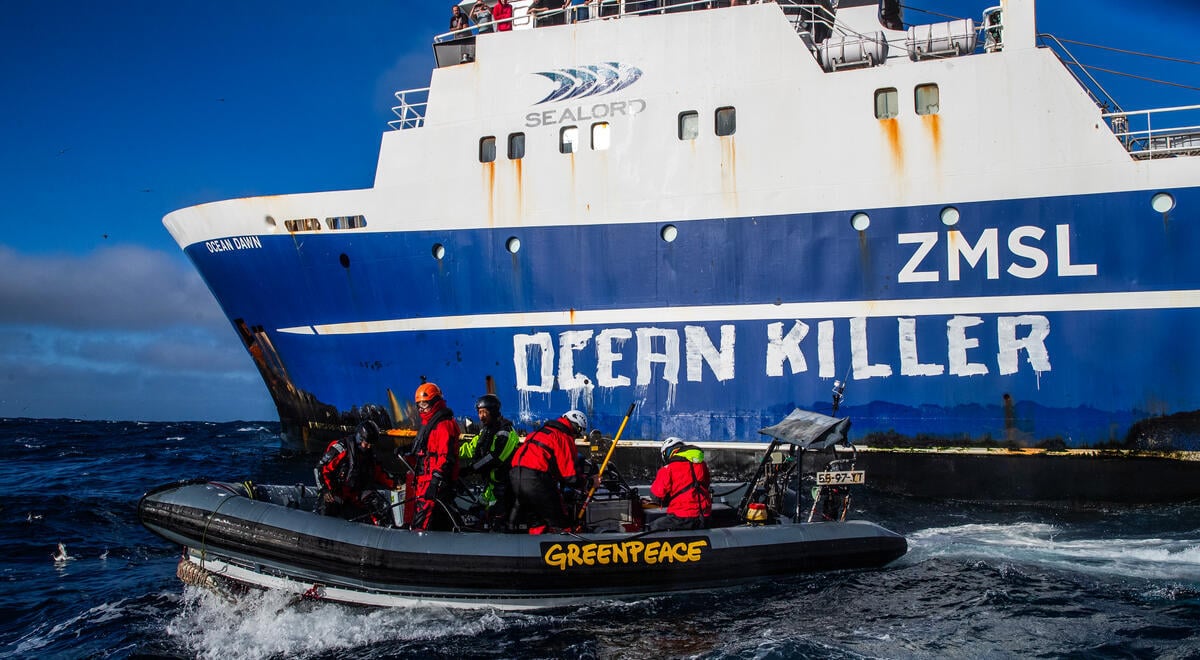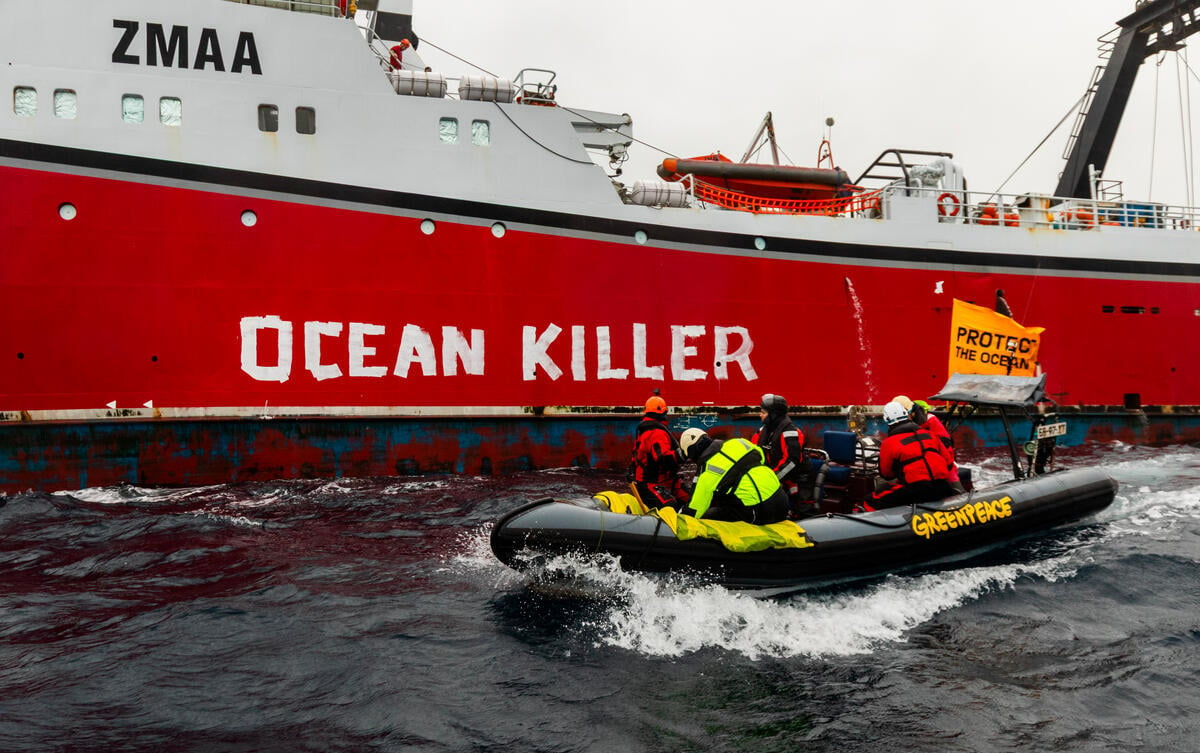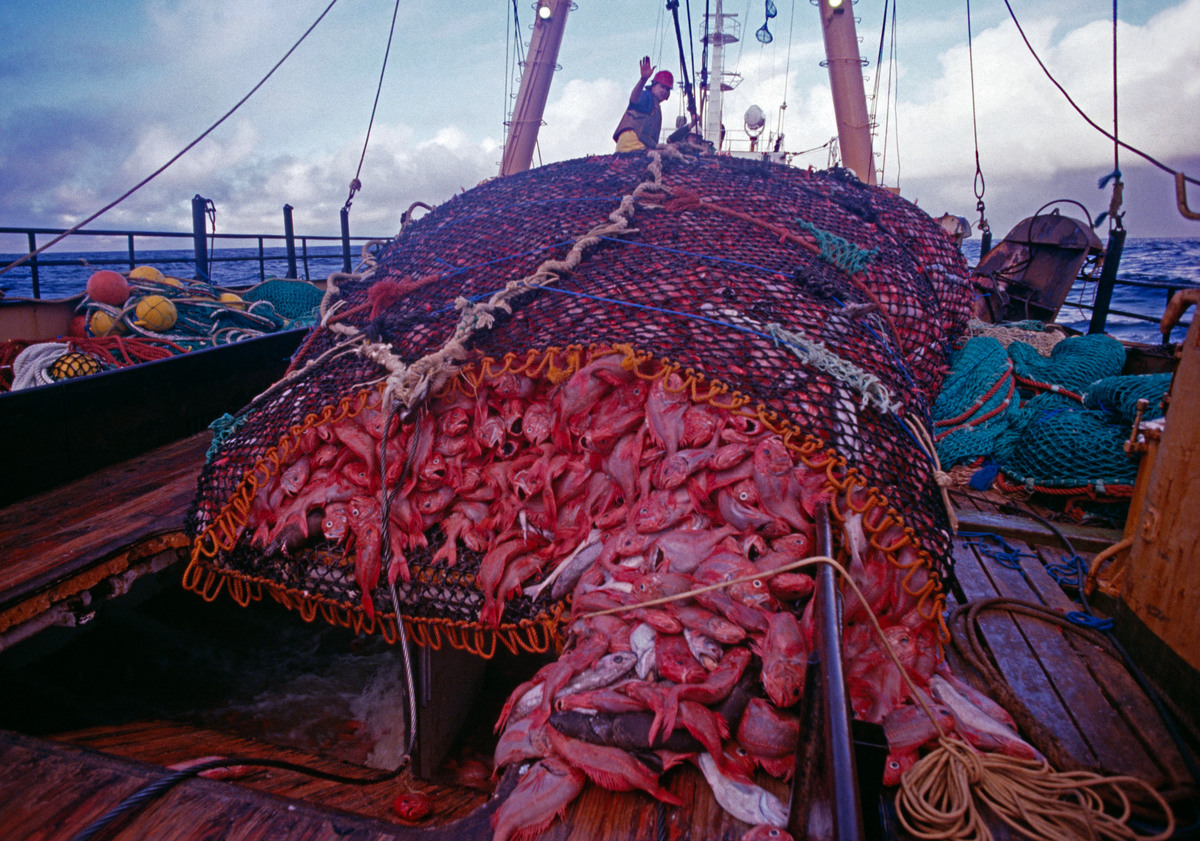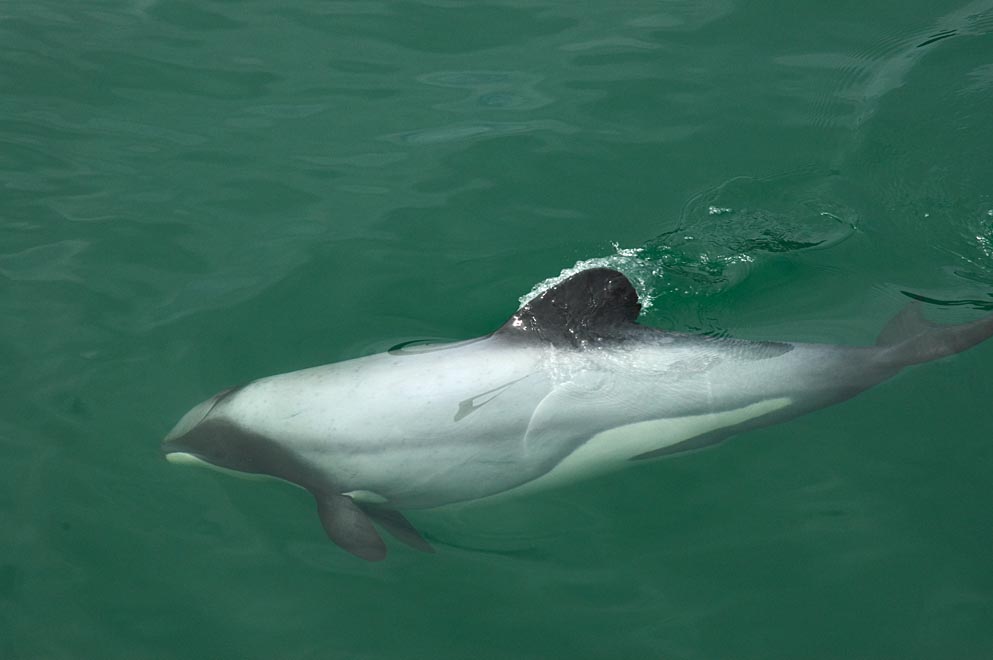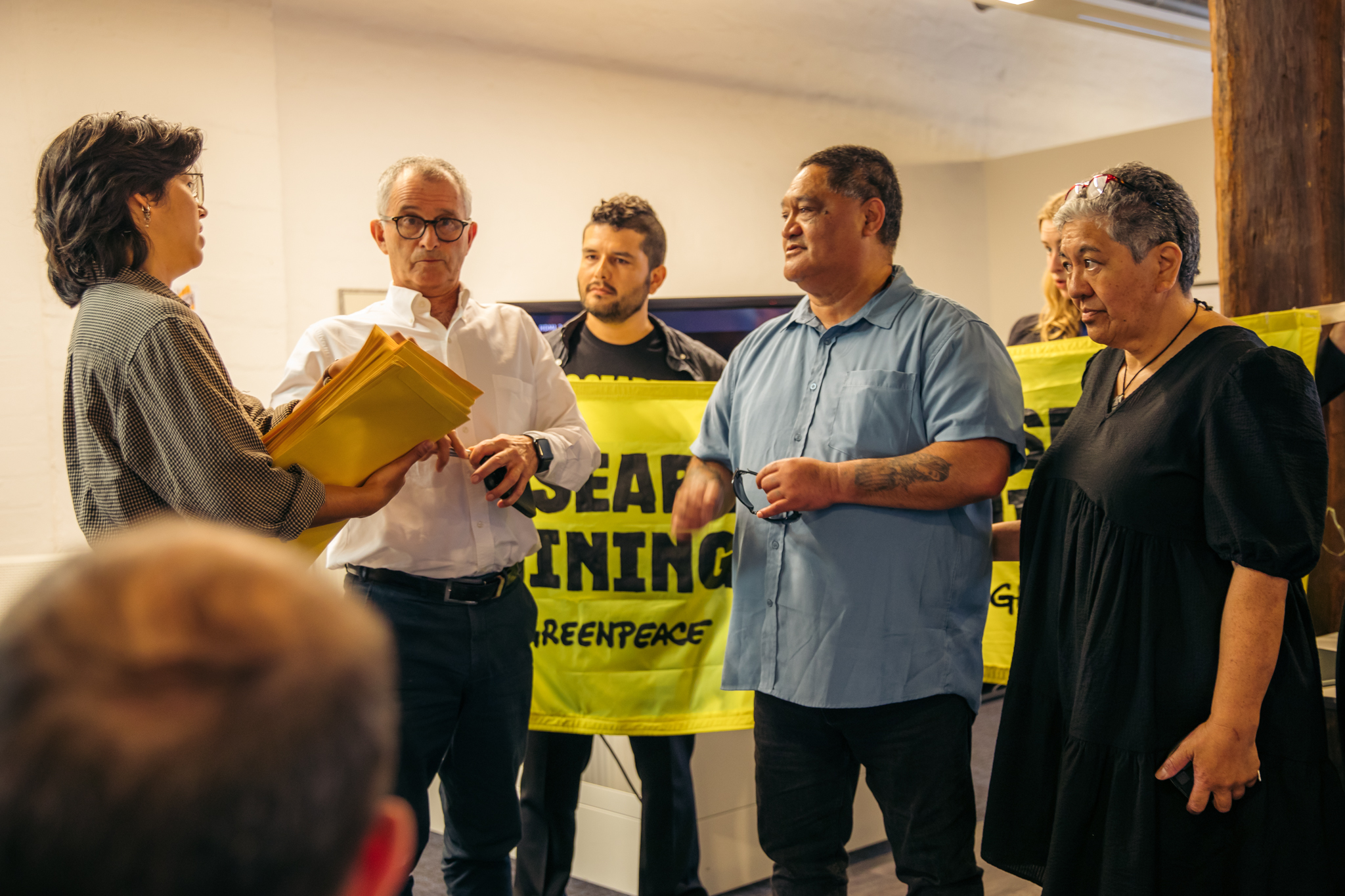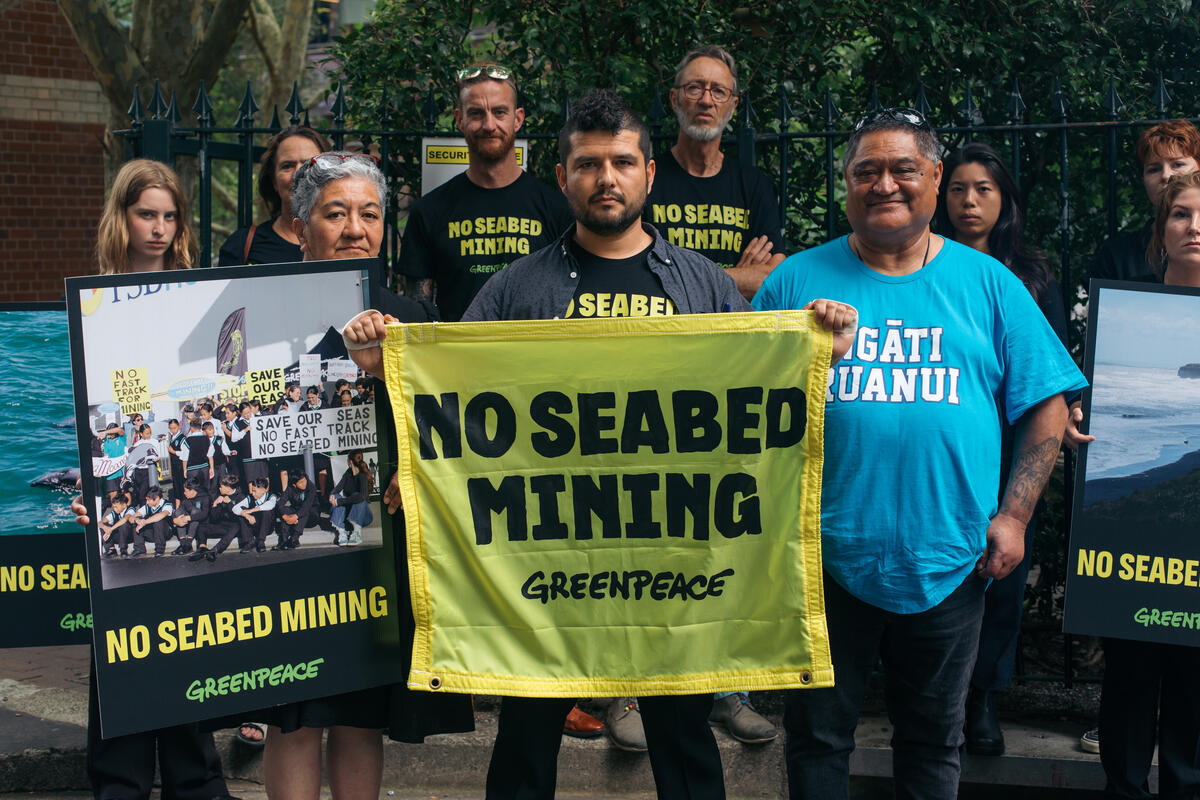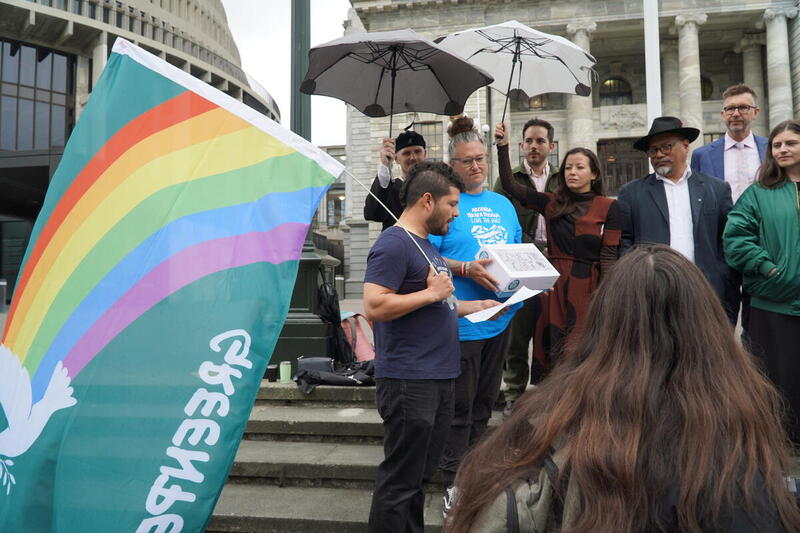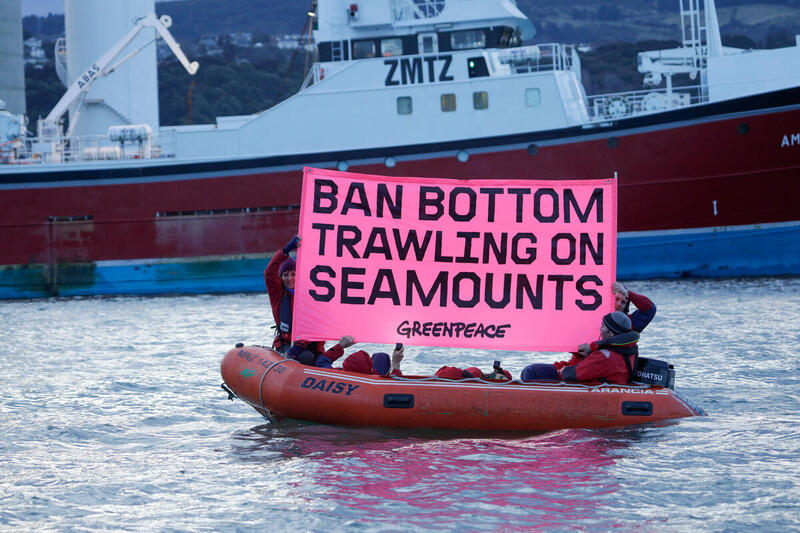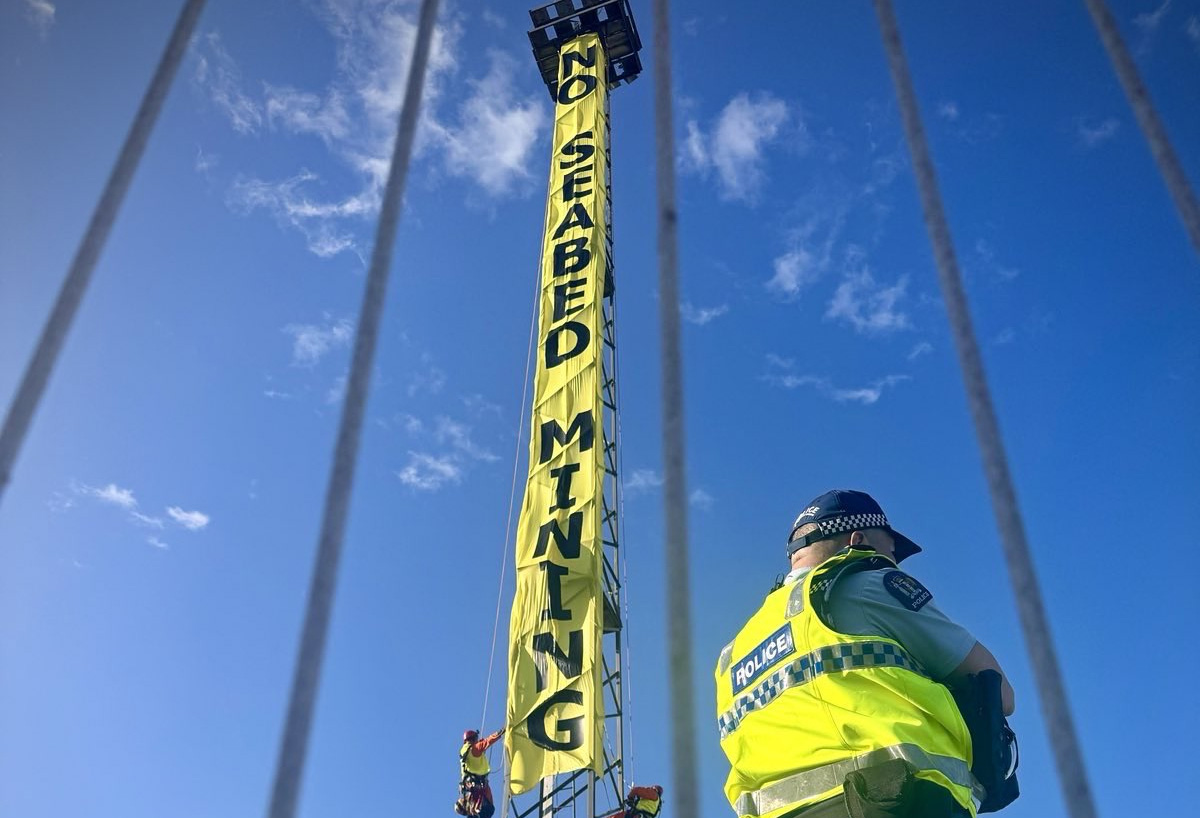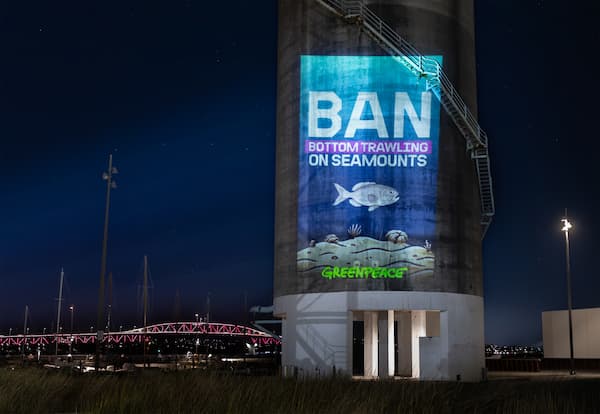All articles by Juan Parada
-
Greenpeace activists confront second “ocean killer” at sea, as vessels turn off AIS
For a second time, Greenpeace Aotearoa activists have confronted a bottom trawler off the East Coast, rebranding it an “ocean killer” in protest at its destructive fishing activities.
-
Greenpeace activists rebrand NZ bottom trawler “ocean killer” at sea
Greenpeace Aotearoa activists have confronted a bottom trawler on the Chatham Rise, rebranding it “ocean killer”, after bearing witness to it hauling in a net straining with marine life.
-
New Zealand position at SPRFMO fisheries forum reckless
Greenpeace is calling the stance taken by New Zealand at a the international SPRFMO fisheries forum short-sighted and reckless.
-
Court rules systemic failings in bycatch reporting
Greenpeace is welcoming a High Court decision that helps clarify how threatened marine species like the Antipodean Albatross can be better protected through accurate bycatch reporting and management, saying the case demonstrates the failings of the current model.
-
On stopping seabed mining, AGMs and bad guests.
Last week, a bunch of us from the Greenpeace team joined up with our friends from Ngāti Ruanui, bought a few shares and flew over to Sydney to the offices…
-
Norway stops seabed mining, putting more pressure on NZ to follow
In a significant victory for the global Greenpeace campaign to stop seabed mining, Norway is stopping the first licensing round for deep sea mining in Arctic waters, which Greenpeace says…
-
Thousands call on government to drop Hauraki Gulf Bill changes
Alongside our allies, Greenpeace has today handed in a petition to parliament calling for the government to drop amendments that would allow commercial fishing in highly protected areas of the…
-
The cost of trawling: 3,000kg dead coral in one year
In the wake of news that a New Zealand bottom trawler destroyed coral in the international waters of the South Pacific, Greenpeace and the DSCC are today revealing the cost…
-
Trans-Tasman Resources’ seabed mining project is a bad idea that refuses to go away
Seabed mining is a terrible idea for ocean ecosystems. Trans-Tasman Resources’ proposal to carry out seabed mining in the South Taranaki Bight has been presented, debated and then rejected every…
-
Projection calls for NZ to stop destructive bottom trawling
Greenpeace is calling for New Zealand to stop bottom trawling on seamounts in the South Pacific high seas, projecting disappearing fish and destroyed coral onto a silo on Auckland’s waterfront to highlight the destruction caused by the fishing method.

